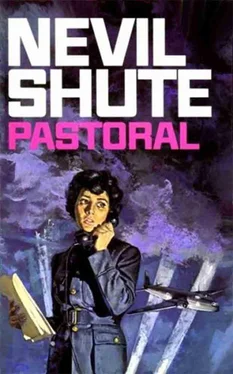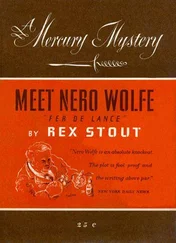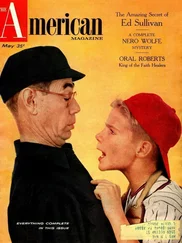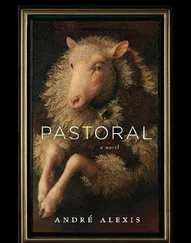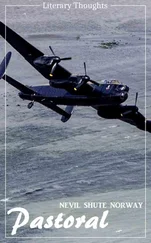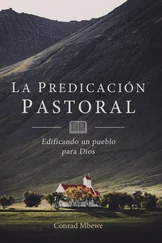Nevil Shute Norway - Pastoral
Здесь есть возможность читать онлайн «Nevil Shute Norway - Pastoral» — ознакомительный отрывок электронной книги совершенно бесплатно, а после прочтения отрывка купить полную версию. В некоторых случаях можно слушать аудио, скачать через торрент в формате fb2 и присутствует краткое содержание. Жанр: unrecognised, на английском языке. Описание произведения, (предисловие) а так же отзывы посетителей доступны на портале библиотеки ЛибКат.
- Название:Pastoral
- Автор:
- Жанр:
- Год:неизвестен
- ISBN:нет данных
- Рейтинг книги:3 / 5. Голосов: 1
-
Избранное:Добавить в избранное
- Отзывы:
-
Ваша оценка:
- 60
- 1
- 2
- 3
- 4
- 5
Pastoral: краткое содержание, описание и аннотация
Предлагаем к чтению аннотацию, описание, краткое содержание или предисловие (зависит от того, что написал сам автор книги «Pastoral»). Если вы не нашли необходимую информацию о книге — напишите в комментариях, мы постараемся отыскать её.
Pastoral — читать онлайн ознакомительный отрывок
Ниже представлен текст книги, разбитый по страницам. Система сохранения места последней прочитанной страницы, позволяет с удобством читать онлайн бесплатно книгу «Pastoral», без необходимости каждый раз заново искать на чём Вы остановились. Поставьте закладку, и сможете в любой момент перейти на страницу, на которой закончили чтение.
Интервал:
Закладка:
Johnson was there; he pressed the bell and ordered a couple of pints of beer. Few of the pilots drank anything but beer, partly from inclination and partly from economy. Marshall said: ‘Have any trouble getting her down?’
The other shook his head. ‘She came in all right. She was all right once I put the flaps down. But she was a swine to handle all the way home. One flap was out and wouldn’t go back. We had to fly her all the way, in half-hour spells. Then when we put the flaps down to land, she was all right.’
The beer came, two tankards on a tray borne by a white-coated WAAF. ‘I looks towards you,’ said Johnson.
‘I catches your eye,’ said Marshall.
‘What are you doing today?’
‘Going fishing.’
‘Bet you don’t catch anything.’
‘No takers.’
They had been together at Hartley aerodrome for nearly a year. At one time both had been novices of golf; they had laboured together round the Hartley course counting it a superior achievement to hole out in less than eight. Marshall had tired of it and turned to fishing; Pat Johnson had gone forward to a handicap of fifteen in the local tournament. In the evenings they had formed the habit of finding amusement together; they were friends. They were much the same age, and from very much the same social class. Marshall had worked for a year before the war in an insurance office in Holborn; Pat Johnson had been apprenticed to an estate agent in Croydon. Both had developed into seasoned and reliable pilots of large aircraft.
Johnson said: ‘Coming down to the “Black Horse” after dinner? Take you on at shove-halfpenny.’
‘If it’s not raining.’
‘It won’t rain tonight.’
The ‘Black Horse’ was one of the two pubs in Hartley Magna, tacitly dedicated to the air crews; other ranks went to the ‘Swan.’ The ‘Black Horse’ was rather more than a mere country-pub; in peace-time it had been something of a roadhouse, with a snack-bar that still sold sandwiches. It was the only social centre within walking distance of the aerodrome; for the wider life it was necessary to catch the occasional bus for Oxford, fourteen miles away, or jump a ride if there was transport going to the city.
The pilots went and had their lunch together. A masterful, grey-haired woman of about forty-five, Flight Officer Stevens, came and sat by Marshall. ‘Morning,’ she said. ‘I’ve got a bone to pick with you.’
Marshall knew what was coming; he had had this one with the Officer-in-charge-WAAF before. ‘Really?’ he said innocently. ‘What’s that?’
‘Your cup of tea. I cannot have the girls wasting their time bringing you up cups of tea in the middle of the morning. They’ve got their work to do, and that’s not it. If you want elevenses you must come down and get it.’
Marshall said: ‘It was only a little cup . . .’
‘It was the biggest we’ve got on the station. She put two spoonfuls of sugar in, too, which isn’t allowed, and she’d have given you a third if I hadn’t caught her. Next time I’ll put her on a charge.’
‘I wouldn’t do that.’
‘I will. You see if I don’t.’
Marshall dropped the subject, uncertain if the officer was aware that he had got his cup of tea or not. Instead, he said: ‘If I catch a fish this afternoon can I have it for lunch tomorrow?’
Pat Johnson said: ‘That’s what they call an academic question.’
Mrs Stevens said: ‘If it’s one tiddley little roach, you can’t. If it’s a fish that will feed several people, or a lot of fish, you can.’
‘What do you call a lot of fish?’
‘Three or four pounds.’
‘That’s hitched his wagon to a star all right,’ said Mr Johnson.
They went on with the meal in silence. The grey-haired Flight Officer felt out of things beside these inconsequential young men. They had no right to make her feel . . . old, but they did. She could no longer put herself alongside twenty-year-old youth. That afternoon while they were at their games, or flying, she would be writing to her husband in the Western Desert, somewhere near Benghazi. She wrote every other day. The war had brought him two promotions, so that he was now Air Commodore Stevens, and that was splendid; but it had broken up their home. They had had a little house at Chislehurst which had been convenient when he was at the Air Ministry. Three years before, they had put the furniture in store, and shut the door, and left that little house. He had gone to Egypt, she had gone into the WAAFs, the two children had been sent to boarding-school. The furniture, all that they had, was burnt in the London blitz; when the war ended they would have to start all over again. In the meantime she must live with young men and young women twenty years her junior, lonely and out of it. She knew they took her for a dragon. She did not want to be a dragon, which was why she had allowed the girl Beatrice to take Marshall the cup of tea. But she could never get alongside them; she knew now that she never would. She was too old.
Marshall got away from her as soon as he decently could, and drank a quick cup of coffee in the ante-room. Then he went up to his bedroom; in five minutes he was on his bicycle riding out of the camp.
Coldstone Mill was a tall, factory-like building set in the countryside upon the River Fittel. A lane crossed the river on a stone bridge of two arches; a hundred yards below the bridge the mill stood by the weir, and below that again was the millpool. It was a broad, gravelly pool, scoured wide by the millstream and the weir, overhung by trees at the lower end. It stood in pasture fields, very sunny and bright.
The pilot left his bicycle at the mill and went down to the pool. For a time he walked slowly round the edge trying if he could see a fish; presently he sat down and began to assemble his rod. He fitted the little silvery reel and threaded the fine line, and chose the little trace with the single wire, as the rear-gunner had advised him. He spread out his collection of seven plugs upon the flat canvas of his bag and studied them thoughtfully. Finally he chose a desperate-looking parody of a small fish, more like a septic banana than a fish, and hooked it on the trace. Then, standing up, he began to cast over the pool.
He spent the next ten minutes clearing over-runs upon his reel. He was not a very skilled performer.
He fished for the next hour, supremely happy. The rhythm of the cast, the antics of the plug, delighted him; the warm sunlight, and the very fact of handling a well-designed instrument, made him content. The rush of water from the weir made a murmur that drowned the sound of the many aircraft that were in the sky, except when they passed closely overhead; the water slipping past over the green weed and the gravelly shallows was a thing remote from any of his duties.
He paused after an hour or so, and sat down on the ground, and lit a pipe. He took off the septic banana and fitted in its place a peculiar whirligig designed to represent a lame mouse taking swimming exercise, alleged to be very attractive to a pike. He was still sitting smoking when he turned to a step behind him.
It was Gunnar Franck, carrying his roach-pole and his little stool, on his way down to the quieter reaches of the river. ‘Phillips, he say you have come here,’ he said. ‘Goes well?’
‘Very well,’ said the pilot. ‘Marvellous afternoon, isn’t it?’ He lifted the little steel rod. ‘Have a crack with this.’
The Dane took the rod doubtfully, made an ineffective cast, and produced a tangle of line massed and jamming the reel. He handed the rod back to Marshall. ‘I shall go catch a roach,’ he said. ‘When I come back, he will be disentangled, yes?’
The pilot began to unravel the line. ‘Just in time for you to muck it up again,’ he said. ‘Getcha!’ He glanced up at the Dane. ‘None of those bits hit any of the tanks, did they? I was thinking of that just now. I ought to have looked to see.’
Читать дальшеИнтервал:
Закладка:
Похожие книги на «Pastoral»
Представляем Вашему вниманию похожие книги на «Pastoral» списком для выбора. Мы отобрали схожую по названию и смыслу литературу в надежде предоставить читателям больше вариантов отыскать новые, интересные, ещё непрочитанные произведения.
Обсуждение, отзывы о книге «Pastoral» и просто собственные мнения читателей. Оставьте ваши комментарии, напишите, что Вы думаете о произведении, его смысле или главных героях. Укажите что конкретно понравилось, а что нет, и почему Вы так считаете.
